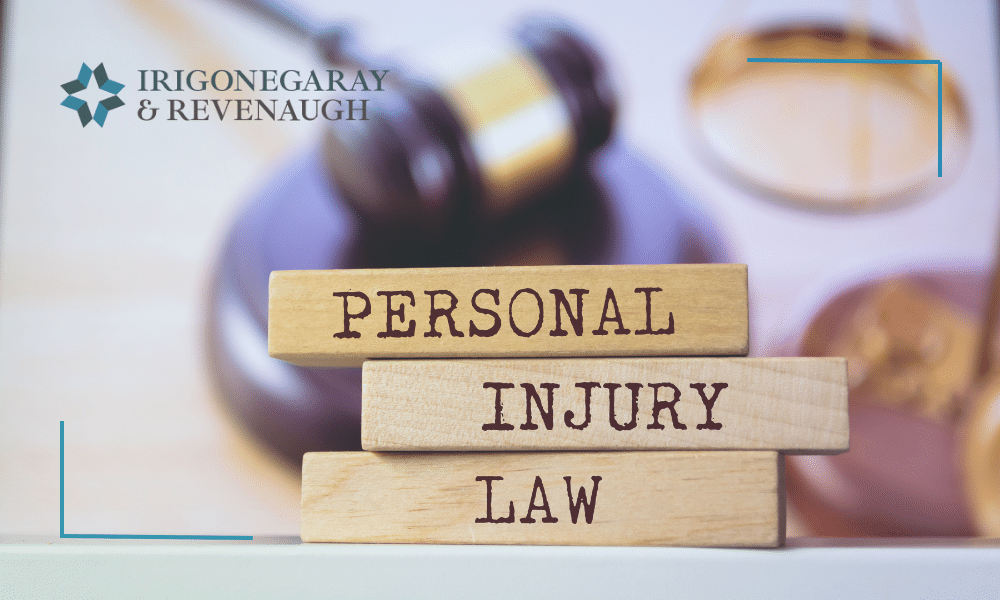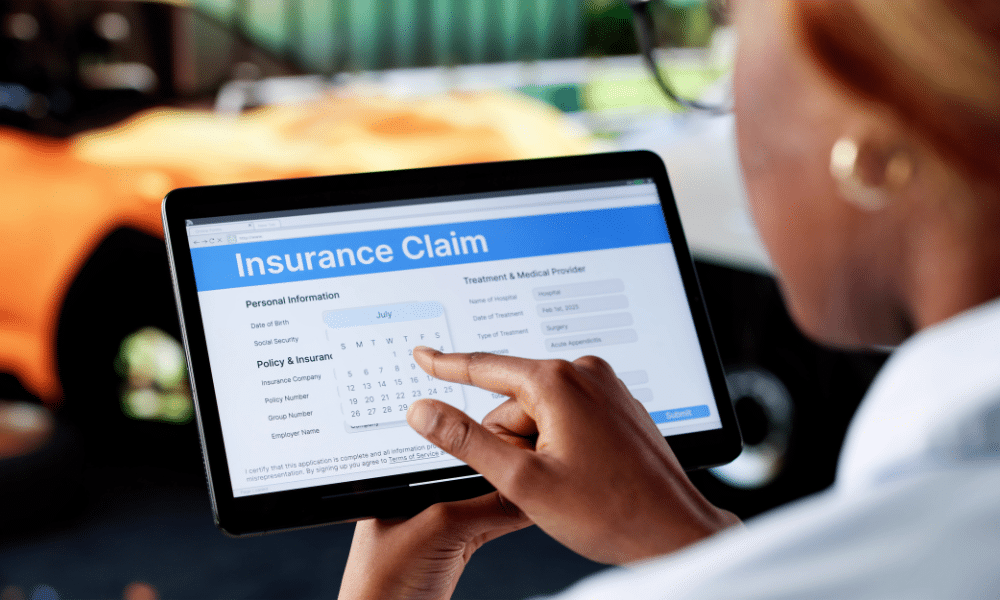Kansas personal injury law differs from other states. This is why it’s important to seek legal guidance from a local personal injury lawyer with a comprehensive understanding of the applicable laws when making a claim.
Here are the main requirements, deadlines, and types of awards you can expect from a personal injury claim after a car accident or other incident causing injury due to another party’s negligence or wrongdoing.
Personal injury law in Kansas: Key concepts
It is helpful to start with an understanding of some basic concepts of Kansas personal injury law:
No-fault insurance for car accident claims
All drivers in Kansas are required by law to purchase Personal Injury Protection (PIP) insurance. No-fault insurance covers drivers for damages (up to a certain amount) even if they are partly responsible for a collision. This helps prevent lawsuits and delayed payments for relatively minor injury claims.
Comparative fault for claims
Kansas follows a modified comparative fault rule for car accidents and other types of personal injury damages. i.e., the amount of recoverable compensation from a claim is affected by the claimant’s percentage of fault.
If, for instance, a claimant is awarded $60,000 but is considered one-third at fault for the accident that led to the claim, the amount actually awarded to the injured person is reduced to $40,000.
Threshold of fault
The comparative fault laws in Kansas allow claims for accidents in which the claimant is partly at fault but the “threshold” of fault for bodily injury is 50 percent.
So, if a driver is deemed 50 percent or more at fault for an accident, the right to file a lawsuit is lost, regardless of the injuries they may have suffered.
In cases where liability is unclear or disputed (which is common), claimants must provide strong evidence to prove fault, which often requires legal assistance.
What are the personal injury damages caps in Kansas?
Kansas no longer sets a limit for the amount of damages that can be awarded in personal injury cases. The previous limits were ruled as unconstitutional in 2019 and have now been removed, meaning that there are no caps on compensation for either economic or non-economic losses for personal injuries in Kansas.
Typical types of personal injury cases in Topeka
The most common types of personal injury cases in Topeka involve car accidents, workplace accidents, product liability, dog bites, intentional torts, and others. Here’s a closer look at each type of claim…
Automobile accidents
Accidents involving cars, motorcycles, trucks, and other vehicles are the most common type of personal injury claim. Most are caused by a failure to follow the road rules (driver negligence), such as speeding, reckless overtaking, failure to signal, rear-ending, drunk-driving, and collisions at junctions or roundabouts.
In Kansas, anyone who suffers injuries as a result of such accidents can make a claim for compensation, including drivers, passengers, pedestrians, cyclists, and motorcyclists.
Workplace accidents in Topeka
Employees injured at work in Topeka can often claim compensation through their employer’s workers’ compensation insurance policy, covering medical costs, lost wages, and other related expenses.
The Kansas Workers’ Compensation Act includes almost all work-related accidents and occupational diseases. However, limits are imposed on how much you can claim. If an employee is injured due to the fault of an outside party who is not employed by the same company, you might also have the right to file a third-party personal injury lawsuit.
Cases are dependent on the precise circumstances, so it‘s best to seek legal advice from a seasoned personal injury attorney before deciding on the course of action.
Other types of personal injury claims
Other than vehicle accidents and accidents in the workplace, personal injury cases are often filed in Kansas because of the following:
- Product liability: Where someone has been injured by negligence from a manufacturer, designer, supplier, or retailer of a product.
- Intentional tort: Where intentional wrongful acts, such as assault or false imprisonment, cause injury to the claimant.
- Dog bites: Where a dog bites or attacks someone, causing injury to the claimant.
- Wrongful death: Where survivors, such as spouses and dependents, seek to recover damages for wrongful or neglectful acts that cause a person’s death.
Defamation: Where a claimant seeks damages for reputational harm caused by libel or slander.
What damages are awarded in Kansas personal injury claims?
A variety of damages may be recoverable in personal injury claims in Kansas, including the following, which are uncapped:
What is the statute of limitations for personal injury cases in Kansas?
Personal injury claims must generally be filed in Kansas within two years of the date of the injury or incident. After this date, the right to file a claim is generally lost, though there are exceptions.
By law, anyone under the age of 18, incapacitated or imprisoned for less than a life term without the ability to file a suit, can extend the deadline to file a lawsuit to one year from the date the “impairment” to filing suit is removed. In the case of minors, children have eight years from the date of the act that caused the injury to file their claim, or one year after their 18th birthday—whichever occurs first.
If a person is not aware of a loss or injury and only discovers this later, the statute of limitations begins from when the loss or injury became “reasonably ascertainable” under Kansas personal injury law. In medical malpractice cases, the deadline is four years from the date of malpractice, while in all other personal injury claims, the deadline is 10 years from the date of the incident that caused injury or death.
What to do after an accident in Kansas
The following steps are recommended to protect yourself physically and legally if you suffer an injury from an accident in Kansas…
Get to safety and seek medical attention
The first step is to get yourself to safety and seek medical attention as soon as you can—even if you think you are not badly injured. The aftermath of an accident is not the best time to self-diagnose whether you are injured or not. Seek a professional medical checkup and retain receipts for check ups or treatment received. This will not only protect your health but also your legal rights by documenting your condition for a later claim, if necessary.
Report the incident and gather evidence
After a vehicle accident, even if you feel uninjured, report the incident to the police so that an accident report will be generated. If the accident happens at work, inform your employer who should have a set of procedures to follow. For accidents on private premises, inform the manager, property owner or staff, as applicable.
At the scene of the accident, if you have the ability to do so, start to collect evidence, such as photos, videos, witness details, etc. This will help your attorney establish liability if necessary.
Are personal injury cases in Kansas usually settled out of court?
The vast majority of personal injury cases end up in an out-of-court settlement, with few cases making it to trial.
Insurance claim, demand letter, and lawsuit
To make an insurance claim, you will need to complete the insurance company’s paperwork, which can in itself be a challenge if you are badly injured.
The first step in recovering your losses from a third party is usually to send a demand letter to the individual concerned, stating what you believe you are owed in compensation. If the accused party agrees and pays the settlement in full, no further action may be required.
More often than not, for any major claim, you’ll need to file a lawsuit after consultation with a personal injury attorney. To do this, you must file documentation at the local court, complete with evidence of liability. The lawsuit documentation must be served to the defendant. Your lawyer will handle these steps so that the correct procedure is followed and nothing important is omitted.
Settlement negotiations
If the defendant accepts liability, a process of negotiation may begin over a settlement agreeable to both parties. If liability is contested or the defendant doesn’t respond, the case is more likely to proceed through the civil courts and end up at trial—although mediation often leads to an agreement before that stage because a trial usually benefits very few parties.
Why hire a personal injury attorney?
It can be challenging to know if a settlement is acceptable or whether you should push for more compensation.
This is where the experience of a personal injury lawyer can be invaluable, helping you fight for no less than the maximum compensation available, based on the economic and non-economic costs of your injuries and losses, the extent to which you’re at fault for the incident (if at all), and precedents set by similar legal cases.
Your lawyer can provide valuable practical, emotional, and legal support at a difficult time, when you are trying to recover from injuries.
If you’re in the Topeka area, speak to a personal injury lawyer at Irigonegaray & Revenaugh during a free case evaluation. We will advise you of your legal options and assess how best to claim the compensation you deserve.
Personal Injury Articles
What to Do If Your Kansas Car Accident Claim Is Denied
In Kansas, after a car accident, you may be [...]
Should I Seek Medical Attention After a Car Accident Even If I Feel Fine?
If you feel fine after a car accident, you’re [...]



